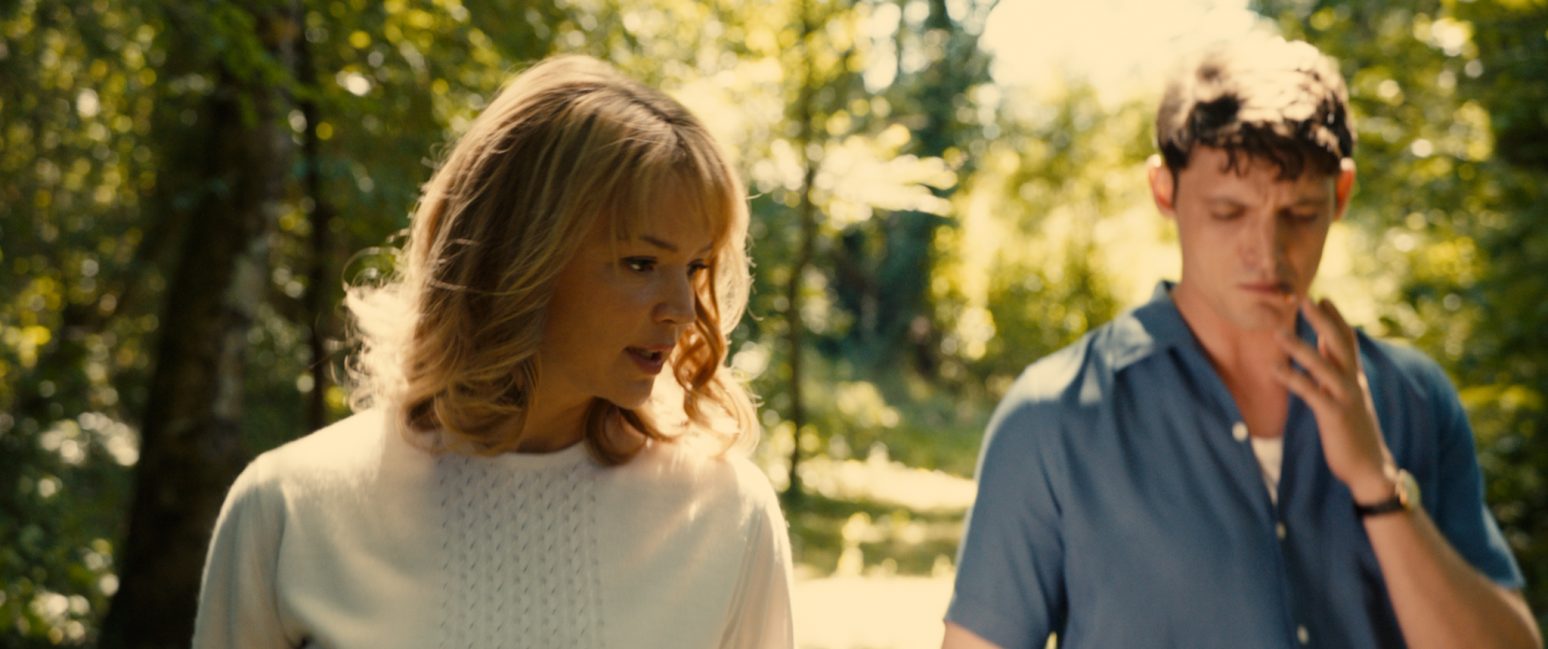
Dir.: Catherine Corsini; Cast: Virginie Efira, Niels Schneider, Jehnny Beth, Estelle Lescure; Belgium/France 2018, 135 min.
Best known for her Lesbian drama La Belle Saison director/writer Catherine Corsini’s screen adaptation of Christine Angot’s novel plays out like an historical thesis on feminism. Starting in the late 1950s in the small French town of Chateauroux, Corsini tells the story of a brief but passionate love affair that turns into a long-term war between Rachel and Niels. Their daughter Chantal will suffer tragically from her father’s contempt for her mother.
When Rachel (Efira), a clerk, meets the upper-middle class Niels (Schneider) they are attracted to each other. But it soon becomes clear he’s just interested in sex, while Rachel is an incurable romantic and falls for the “man of the world”. Niels leaves her, making it clear he’s not interested in marriage. But when Rachel gives birth to a daughter, Chantal (who is played by four actors during the film), Niels refuses paternity, so Rachel has to settle for “father unknown”, which hurts her much more than being left behind with Chantal. The two adults barely talk, but Niels tells Rachel en-passant, that he has married a wealthy German woman “who will look after him”. By the time Chantal (Lescure) reaches adolescence, the picture has changed with alarming consequences for all concerned.
An Impossible Love is sometimes heartbreaking. Rachel has such low self-esteem from the beginning, she does not ask anything for herself: she does not expect Niels to ever recognise her as an equal. But she hopes that her daughter will have a better life, if she can persuade Niels to give her his name. She is well aware how disturbed Chantal is after her frequent visits to her father a teenager, but she is adamant not to rock the boat.
DoP Jeanne Lapoirie, who worked with Corsini on La Belle Saison, has gracefully recreated the atmosphere of the 1950s and early 1960s, when women were (the supposed) passive victims of men. The images show Rachel seemingly living in a “pink world with fluffy clouds”, in which she surrenders he whole identity to Niels. The latter is cold and manipulative, always yearning for his ‘freedom’, committed only to his own progress. If one compares Rachel with the adult Chantal, one sees the difference. Progress, so Corsini, has been made, but at what cost: since Chantal had to carry the burden of her mother’s lack of self-esteem. Even though sometimes over-didactic, Corsini achieves her goal of showing the long, ongoing struggle for emancipation. AS
NOW SHOWING at http://Curzoncinemas.com and selected arthouse venues | Previewed at BFI LONDON FILM FESTIVAL 2018
https://youtu.be/B-2QL8tjP2I